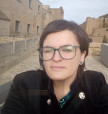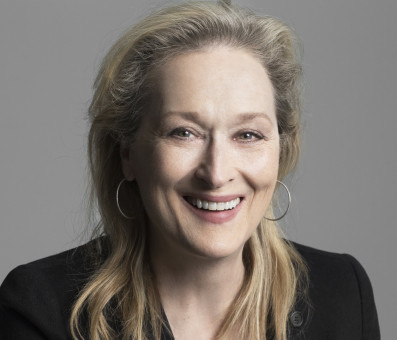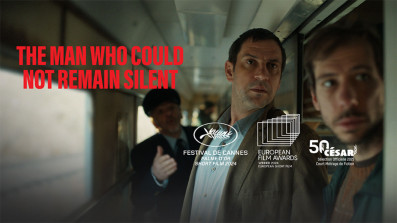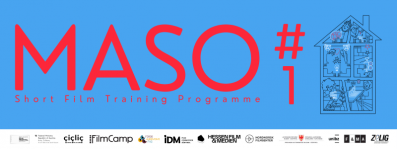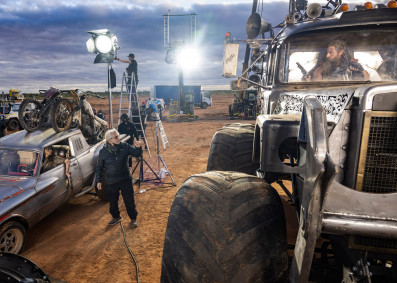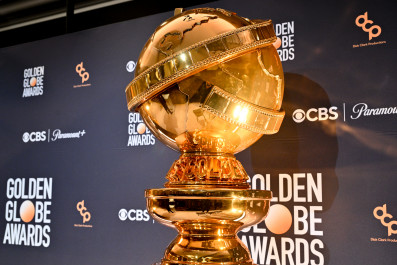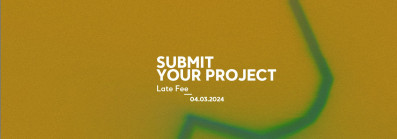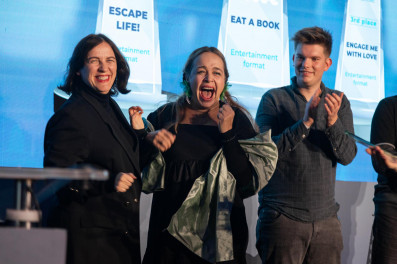
GoEast Film Festival kicks off online and postpones other sections for later this year
Online festival edition and offline - spread out throughout the year
From the very beginning of the Covid-19 crisis, goEast - the festival of Central and Eastern European Film in the German city of Wiesbaden has been bravely determined not to cancel its passionately prepared and so much waited 20th anniversary edition. Hence, when the event dates approached and the state restrictions threatened its physical celebration within the scheduled period, the organization took the inventive decision to go hybrid and to spread out the program throughout the year.
A special On-demand program with selected highlights will be launched during the original dates from May 5-11 which is already next week. However, the annual Symposium titled ‘Film Heritage in Transition’, showing classics from the era around the fall of the Iron Curtain (1985–1999) and tackling current ongoing issues of archival preservation, digitization and the exhibition will be held from July 24th to 27th 2020, in the cinema of DFF – Deutsches Filminstitut & Filmmuseum in Frankfurt am Main. The most waited for part of the festival, its Competition section will be hosted by the exground Film Festival in Wiesbaden, taking place in the second half of November. The goEast team insists on holding these two key festival sections in cinemas as they believe that “film art belongs on the big screen”. Meanwhile, organizers have also decided to distribute to the cash prize of the main competitions between all films as a gesture of solidarity in the face of the current uncertain financial situation for the film industry.
The On-demand program offers the complete special 20th-anniversary section ‘Europa, Europa’ assembled in honour of the foundational mission of the festival. It debates diverse aspects of the actual European experience through the selected films as they examine current reality from a critical perspective. The selection includes the allegoric Kornél Mundruczó’s White God (Hungary/Germany/Sweden, 2014), in which furious tortured mongrels conquer Budapest, as a rage response to the unfair “social treatment” they receive. Valeska Grisebach’s Western (Germany/Bulgaria/Austria, 2017) zooms in the everyday struggles of Bulgarian construction workers while both Juris Kursietis’ Oleg (Latvia/Belgium/Lithuania/France, 2019) and Petr Václav’s Skokan (Czech Republic/France, 2017) deal with migrants issues around Europe. Among the very highlights of ‘Europe, Europe’ is Jolanta Dylewska’s, Marek Edelmann… And There Was Love In The Ghetto (Poland/Germany, 2019), a completed by her project originally started by Andrzej Wajda that takes place in the Warsaw ghetto; and the Oscar-nominated violent black-and-white war drama The Painted Bird (the Czech Republic/Slovak Republic/Ukraine, 2019) by Václav Marhoul, who will be giving this year’s master class, also online. Another live talk to be streamed is with acclaimed Romanian director Radu Jude whose work is in the focus of the ‘Portrait’ section. His latest docu-fiction Uppercase Print about a Romanian teenager who wrote graffiti messages against Ceausescu’s regime, premiered in Berlinale earlier this year and is among the hits of the on-demand program.
The ‘Bioscope’ section that traditionally brings the best Central and Eastern European films from the last two years will be available online as well. This time it features many celebrated titles like Oleg Sentsov’s dystopian prison drama Numbers (Poland/Ukraine/France/Czech Republic, 2020), Miguel Llansó’s science-fiction satire Jesus Shows You the Way to the Highway (Spain/Estonia/Ethiopia/Latvia/Romania, 2019), and the cult documentary Andrey Tarkovsky. A Cinema Prayer (Italy, Russia, Sweden, 2019), a personal take on the legendary Soviet director’s life and work by his son Andrey A. Tarkovsky. Not to be missed either is the ‘Anarcho Shorts’ section with unconventional suggestions from an urban perspective.
As for the side events, the planned exhibition ‘Memes From Slavistan’ is also currently being adapted for online presentation while the regular VR Open Frame Award section pays homage to the beautiful art nouveau Caligari film theatre which remains physically closed but guided tours as a walkthrough will be streamed. The Open Frame Award Competition entries could be also seen online, however, the use of a VR headset is recommended. In the foyer, the participating VR artists and visitors will be able to enter into virtual conversations. Thanks to special software, the virtual location will also be accessible from personal computers.
More information at: https://www.filmfestival-goeast.de/en/


